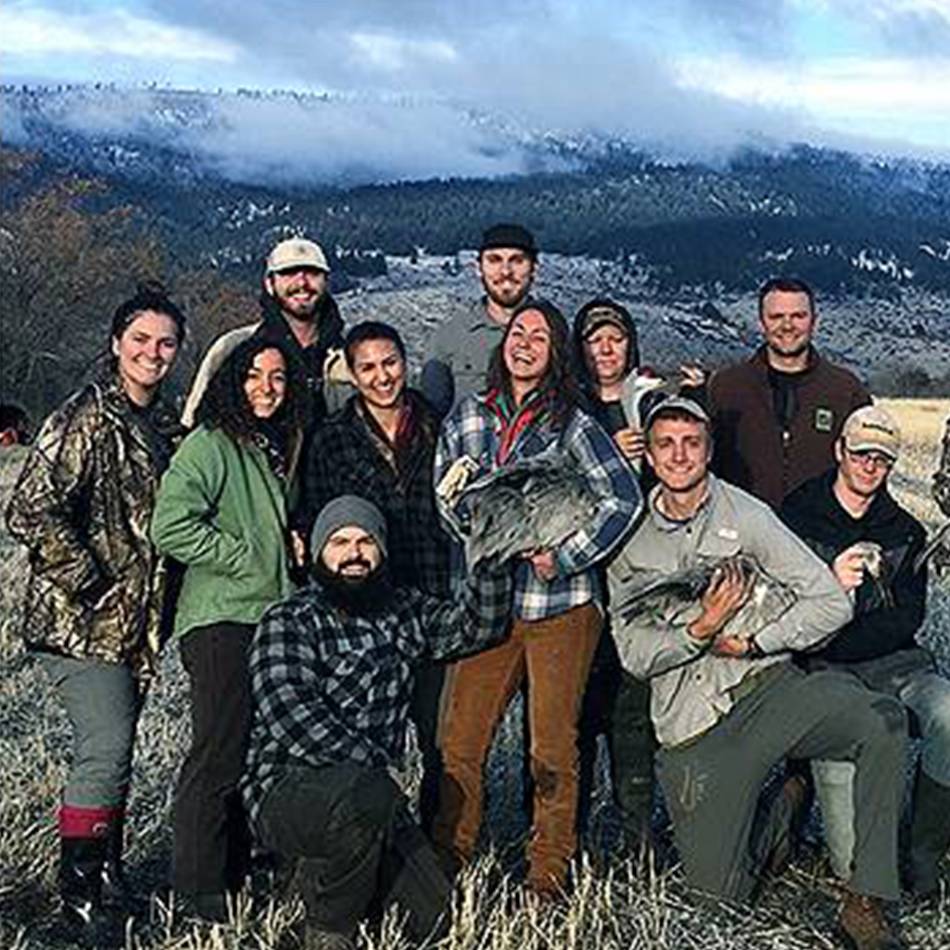
"Our undergraduate students are our best ambassadors, our legacy, and perhaps our greatest product and contribution to our science and mission."
Texas Tech University's Department of Natural Resources Management current undergraduate growth exceeds the average university rate. The department asked graduating seniors, alumni, and stakeholders – over the course of the past six years – why NRM? Among the findings within this informal, yet important survey is that degrees are only indicators of capabilities; proof of capability is demonstrated by future performance of the department's alumni.

Strong natural resource management research and graduate programs feed into meaningful experiential opportunities for undergraduate students, said Blake Grisham, one of the article's authors and an associate professor with Tech's Department of Natural Resources Management. The program is also recursive, where strong undergraduate programs also support strong graduate programs and feed employers and other graduate programs.
"Our undergraduate students are our best ambassadors, our legacy, and perhaps our greatest product and contribution to our science and mission," he said. "We have learned the development and maintenance of student engagement and degree pride are like a paradigm shifting without a clutch: The process is slow, tedious, and a labor of love, but becomes positively unstoppable after third gear."
During the past decade the undergraduate enrollment of Tech's Department of Natural Resources Management has seen phenomenal growth, climbing from 135 undergraduates in 2012 to 350 undergraduates in 2020. And while Texas Tech's overall jump in enrollment during that period – 32,408 (2012) to 40,332 (2020) – certainly benefited the department through increased revenue via more student classroom credit hours, one major disadvantage of having more students is obtaining the resources to train each effectively and efficiently, and still provide those memorable and impactful experiences for NRM undergraduate students.
"We believe we have navigated this quality-quantity-experience trifecta relatively well, by reinforcing, if not 'doubling down' on soft-skills and experiential learning," said Warren Conway, chair of Tech's Department of Natural Resources Management. For example, he said, feedback from end-of-degree evaluations completed by graduating seniors since 2014 indicate the department's above average growth and popularity among potential employers and graduate faculty is attributed to an engaged, active faculty; hands-on experience inside and outside the classroom; development of degree pride; and active professional organizations.
In addition to Grisham and Conway, the article's editors included Cade Coldren from Tech's Department of Plant and Soil Sciences, along with Phillip Gipson from the Department of Natural Resources Management. Other participants were James Ray, Consolidated Nuclear Security-Amarillo; and Robert Stubblefield, Texas Tech University-Junction.
Separately, the article noted that now, during times of rapid student enrollment growth and particularly during the times of COVID-19, emphasizing field-based experiential learning opportunities, both formally via classes and informally via collaborative field trips, captures, and other experiences is more important than ever. "Abandoning these now is not an option," Conway said. "Indeed, when combined, or at least taken advantage of in one way or another, the classes teach the students technical and soft skills employers find attractive."
The article noted that students not only benefit from a quality faculty, but from guest lecturers. NRM students have multiple opportunities to engage in a field-based setting with wildlife professionals from different agencies, universities, and walks of life. During the last five years, professionals from Texas Parks and Wildlife Department, Texas A&M University Wildlife Extension, the U.S. Geological Survey, Consolidated Nuclear Security, U.S. Fish and Wildlife Service, retired NRCS alumni, and a host of other professionals have volunteered their time to work with the department students in the field, specifically NRM 3407.
"Ranging from learning in field techniques for trapping mesocarnivores, catching birds of prey, performing deer necropsies, and learning how to apply for positions, these colleagues have provided invaluable experiences to our students that have been impactful, informational and transformational," Conway said.
CONTACT: Warren Conway, Bricker Endowed Chair in Wildlife Management and Chair, Department of Natural Resources Management, Texas Tech University at (806) 834-6579 or warren.conway@ttu.edu
Article written by Norman Martin, CASNR NewsCenter
